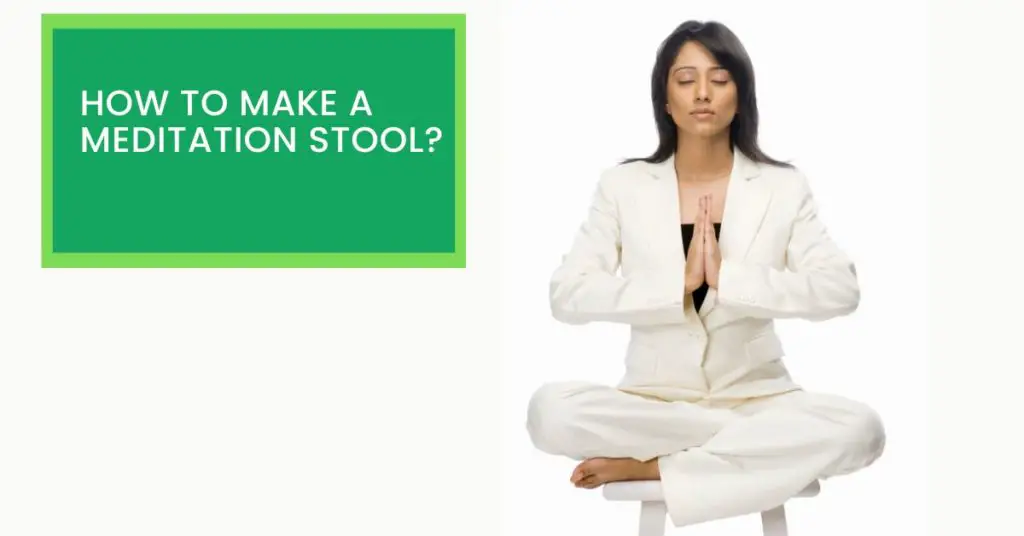Welcome to the world of meditation, where you get to sit still and do nothing, and it’s considered a productive activity!
But jokes aside, meditation is a practice that has been around for centuries, and it’s gaining popularity among people of all walks of life, including Christians.
But wait, can Christians even meditate? Is it compatible with their beliefs?
Yes, Christians can meditate, as long as they approach it in a way that aligns with their beliefs and values. Mindfulness practices can be adapted to include Christian teachings and prayer.
Let’s start by defining what meditation is. Meditation is the practice of focusing your mind and attention on a specific object, thought, or activity to achieve a state of calmness, relaxation, and mental clarity.
It’s a way of training your mind to be more aware, present, and mindful of your thoughts and emotions.
Now, some Christians might think that meditation is only for those “New Age” hippies or Eastern religions.
But the truth is, meditation has been a part of Christian spirituality for centuries. In fact, many of the early Christian monks and mystics practiced various forms of meditation as a way of deepening their relationship with God.
In fact, research has shown that meditation can have numerous benefits for Christians, such as improved focus, reduced stress and anxiety, and a deeper sense of inner peace.
So, if you’re a Christian who’s curious about meditation, don’t be afraid to give it a try! Just make sure to do your research, seek guidance from trusted spiritual mentors, and approach it with an open mind and heart.
In conclusion, meditation is not just for yogis and gurus. Christians can also benefit from this ancient practice of mindfulness and stillness.
So, go ahead and give it a try! Just don’t forget to bring your Bible and a sense of humor, because, let’s face it, meditation can be challenging, but it’s also a lot of fun.

Can a Christian do meditation?
Meditation has become increasingly popular in recent years as more people recognize the benefits of this practice for reducing stress, improving focus, and promoting inner peace.
However, for some Christians, the idea of meditation may raise questions about its compatibility with their faith.
One common misconception about meditation is that it is associated with Eastern religions and spiritual practices that are incompatible with Christian beliefs.
This view is not entirely accurate, as meditation is a practice that has been utilized across various cultures and religious traditions throughout history.
The truth is that Christian meditation is a legitimate and well-established practice that has been in use for centuries.
In fact, meditation has deep roots in Christian history and has been an essential part of Christian spirituality since the early days of the church.
At its core, Christian meditation involves focusing on God’s word and presence as a means of deepening one’s relationship with God.
By engaging in this practice, Christians seek to become more aware of God’s presence in their lives, deepen their faith, and cultivate a more profound sense of peace and calm.
Furthermore, many Christians who practice meditation find that it complements their other spiritual practices, such as prayer, Bible study, and worship. Meditation can be a powerful tool for fostering spiritual growth, promoting self-awareness, and increasing one’s connection to God.
So, can a Christian do meditation? The answer is a resounding yes.
There is no inherent conflict between Christian beliefs and meditation practice, as long as the focus remains on God and the practice is approached in a way that is consistent with Christian values and beliefs.
In fact, for Christians who are looking for ways to deepen their relationship with God, reduce stress, and cultivate a greater sense of inner peace, meditation can be an excellent tool.
By engaging in this practice, Christians can draw closer to God, increase their spiritual awareness, and become more fully attuned to the presence of God in their lives.
Is There a Special Meditation Way for Christians?
While Christians can engage in various forms of meditation, there are unique approaches to Christian meditation that draw upon the rich history and traditions of the faith.
- One such tradition is Christian contemplative prayer, which involves silently focusing on God’s presence and allowing the mind to rest in His love.
This practice dates back to the early Christian mystics, such as the Desert Fathers and Mothers, who sought to deepen their relationship with God through prayer and meditation.
- Another approach to Christian meditation is Lectio Divina, which involves reading a passage from Scripture and meditating on its meaning and significance.
This practice emphasizes the importance of allowing the Word of God to speak to us personally and transform our hearts and minds.
- Yet another approach is Centering Prayer, which draws upon the Christian contemplative tradition while incorporating elements of Eastern meditation practices.
This practice involves sitting in silence and focusing on a sacred word or phrase, such as “Jesus” or “Abba,” as a way of opening oneself to God’s presence and action in our lives.
In all of these Christian meditation practices, there is an emphasis on turning inward and quieting the mind in order to cultivate a deeper awareness of God’s presence.
Many Christians find these practices to be transformative, allowing them to experience a greater sense of peace, joy, and spiritual growth.
Does the Bible mention meditation in any way?
Meditation is not a new concept in Christianity. In fact, it has roots in Biblical teachings and has been practiced by Christians throughout history.
The Bible mentions meditation in various passages, and understanding these references can help Christians better understand the practice of meditation.
One of the most well-known Biblical references to meditation is found in Joshua 1:8, which says, “This Book of the Law shall not depart from your mouth, but you shall meditate on its day and night, so that you may be careful to do according to all that is written in it.
For then you will make your way prosperous, and then you will have good success.” This passage emphasizes the importance of meditating on God’s word and allowing it to guide one’s actions.
Another well-known passage that mentions meditation is Psalm 1:1-3, which says, “Blessed is the man who walks not in the counsel of the wicked, nor stands in the way of sinners, nor sits in the seat of scoffers, but his delight is in the law of the Lord, and on his law, he meditates day and night.
He is like a tree planted by streams of water that yields its fruit in its season, and its leaf does not wither. In all that he does, he prospers.” This passage also emphasizes the importance of meditating on God’s word and its impact on one’s life.
Other Biblical references to meditation include Psalm 19:14, Psalm 119:15, Colossians 3:2, and Philippians 4:8. Each of these passages emphasizes the importance of focusing one’s thoughts on God and His teachings.
It’s worth noting that the Hebrew and Greek words used in the Bible to refer to meditation have a wider range of meanings than the English word “meditation.” These words can also be translated as “ponder,” “reflect,” “consider,” or “mutter.”
This suggests that meditation in the Biblical sense is not necessarily a specific technique or practice but rather a broader concept of focusing one’s thoughts on God and His teachings.
Overall, the Bible’s references to meditation provide a strong foundation for Christians to incorporate meditation into their spiritual practices. By focusing on God’s word and teachings, Christians can deepen their relationship with God and find greater spiritual growth.

Difference between Christian and other forms of meditation?
While meditation has become increasingly popular in Western culture, there are distinct differences between Christian and non-Christian forms of meditation.
- Christian meditation is rooted in the teachings of Jesus and is often intertwined with prayer and contemplation.
Non-Christian forms of meditation, on the other hand, maybe more focused on mindfulness or self-realization.
- Christian meditation often involves focusing on specific passages or symbols within the context of one’s faith, whereas secular meditation may involve focusing on the breath or the present moment.
- The worldview and philosophical underpinnings of Christian and non-Christian forms of meditation can differ significantly, with Christianity emphasizing concepts such as sin and redemption, while non-Christian forms of meditation may focus on concepts such as karma or enlightenment.
That being said, there can be potential overlap and integration between Christian and non-Christian meditation practices.
For example, some Christians may find benefit in incorporating mindfulness practices into their meditation, while some non-Christian practitioners may find value in incorporating Christian symbolism or prayer into their meditation.
However, it is important to approach these practices with discernment and critical reflection, ensuring that they align with one’s personal beliefs and values.
The Benefits of Meditation for Christians
Meditation has been shown to provide numerous benefits for both the body and the mind.
However, for Christians, the benefits of meditation can extend beyond physical and mental health to encompass spiritual growth and a deeper relationship with God.
- One of the primary benefits of meditation is the ability to reduce stress, anxiety, and negative emotions. By quieting the mind and focusing on the present moment, meditation can help Christians to let go of worries and fears and experience greater inner peace.
This can be particularly helpful for those who struggle with anxiety or depression, as well as for anyone seeking to cultivate greater emotional resilience.
- Another benefit of meditation for Christians is the ability to deepen one’s relationship with God. By setting aside time for quiet reflection and contemplation, Christians can open themselves up to the presence of the divine and experience a greater sense of spiritual connection.
Meditation can also help Christians to develop greater spiritual awareness and discernment, enabling them to better discern God’s will for their lives.
- In addition to these spiritual benefits, meditation can also provide physical health benefits, such as reduced blood pressure, improved sleep, and decreased inflammation.
These benefits can help Christians to take care of their bodies as temples of the Holy Spirit, enabling them to better serve God and others.
Ultimately, the benefits of meditation for Christians are numerous and far-reaching.
By incorporating meditation into their daily lives, Christians can experience greater physical, mental, and spiritual well-being, as well as a deeper connection with God and a greater sense of purpose and meaning in life.

When and How to Do Christian Meditation
Now that you have decided to try Christian meditation, the question arises: when and how should you do it? Unlike some other spiritual practices, Christian meditation is flexible and adaptable.
You can do it at any time and in any place, as long as you have a few minutes of quiet and focus.
When it comes to timing, many people find that morning is the best time to meditate, as it helps them start their day with a sense of calm and centeredness.
Others prefer to meditate at night, as a way to unwind and release the stresses of the day. However, there is no one-size-fits-all answer to this question, and you should choose a time that works best for you.
As for how to do Christian meditation, the key is to find a method that resonates with you and your beliefs.
Some people prefer to use specific prayers or passages from the Bible, while others simply focus on their breath or a sacred word.
Whatever approach you choose, remember that the goal is not to empty your mind or achieve a certain state of consciousness, but to deepen your connection with God and become more aware of His presence in your life.
Here are some practical tips to help you get started with Christian meditation:
- Find a quiet and comfortable place where you won’t be disturbed.
- Set a timer for your desired length of meditation (start with 5-10 minutes if you’re new to it).
- Sit with your back straight and your hands resting on your lap or knees.
- Take a few deep breaths to center yourself and release any tension in your body.
- Choose a word, phrase, or prayer that resonates with your faith, and use it as a focal point for your meditation.
- Whenever your mind wanders, gently bring your attention back to your focal point.
- Be patient and compassionate with yourself, and remember that meditation is a practice, not a performance.
By incorporating Christian meditation into your daily routine, you can deepen your relationship with God, reduce stress and anxiety, and cultivate greater spiritual awareness.
So why not give it a try? With a little patience and discipline, you may be surprised at how transformative this practice can be.
How to Integrate Meditation into Your Christian Practice
Now that we’ve established that Christians can indeed meditate, the next question is: how can you integrate meditation into your Christian practice?
First and foremost, it’s important to remember that meditation is not a substitute for prayer or reading the Bible.
Rather, it is a complementary practice that can enhance your spiritual life. So, if you’re already accustomed to praying and studying the Bible regularly, you’re off to a good start!
Here are some practical tips for incorporating meditation into your daily routine:
- Set aside a specific time and place for meditation.
Just like you set aside time for prayer and Bible study, it’s important to set aside a specific time and place for meditation.
This could be first thing in the morning, during your lunch break, or before bed. Find a quiet, comfortable spot where you can sit for a few minutes without distractions.
- Start small and be consistent.
As with any new habit, it’s important to start small and be consistent. Begin with just a few minutes of meditation each day and gradually work your way up to longer sessions.
It’s better to meditate for a few minutes each day than to try to do a long session once a week.
- Use guided meditations or apps.
If you’re new to meditation, it can be helpful to use guided meditations or apps. There are many Christian meditation apps available, such as Abide and Pray as You Go.
These apps provide guided meditations and scripture readings that can help you focus your mind and connect with God.
- Combine meditation with prayer.
As we’ve discussed, meditation and prayer are complementary practices. Consider incorporating meditation into your prayer time by using a breath prayer or centering prayer.
You could also try praying before and after your meditation session, thanking God for the opportunity to quiet your mind and connect with Him.
- Be open to different types of meditation.
There are many different types of Christian meditation, each with its own unique benefits and approaches. Don’t be afraid to experiment with different types of meditation, such as Lectio Divina or Visio Divina, to find what works best for you.
By incorporating meditation into your Christian practice, you can deepen your relationship with God, increase your spiritual awareness, and reduce stress and negative emotions.
So, why not give it a try? Start small, be consistent, and be open to the ways in which God may work in your life through this practice.

Conclusion
In conclusion, the answer to whether Christians can meditate is a resounding yes. Meditation, when approached from a Christian perspective, can be a powerful tool for deepening one’s relationship with God and strengthening faith.
The practice can help Christians focus their thoughts, develop a greater sense of inner peace, and connect with God on a deeper level. It is important, however, for Christians to approach meditation with discernment and caution, seeking guidance from trusted spiritual leaders and basing their practice on biblical principles.
By doing so, Christians can experience the many benefits of meditation while remaining firmly rooted in their faith.
Frequently Asked Questions
Can a Christian do mindful meditation?
Yes, a Christian can do mindful meditation.
However, it is important for Christians to approach meditation in a way that aligns with their beliefs and values, and to use meditation as a tool for deepening their spiritual connection with God rather than as a replacement for their faith.
Do Christian monks meditate?
Yes, Christian monks practice various forms of meditation as a means of deepening their relationship with God and cultivating inner stillness and awareness.
Some Christian monastic traditions include meditation practices such as Lectio Divina and Centering Prayer.
Is meditating praying to God?
Meditation can be a form of prayer for some people, but it is not inherently the same as praying to God.
While some meditation practices may involve focusing on spiritual or religious beliefs, meditation is generally seen as a way to quiet the mind, cultivate mindfulness, and promote inner peace and well-being, rather than as a form of direct communication with a deity.




